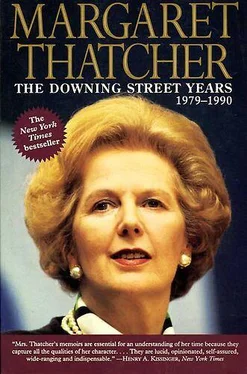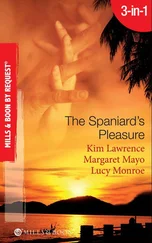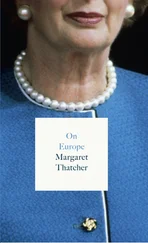Margaret Thatcher - The Downing Street Years, 1979-1990
Здесь есть возможность читать онлайн «Margaret Thatcher - The Downing Street Years, 1979-1990» весь текст электронной книги совершенно бесплатно (целиком полную версию без сокращений). В некоторых случаях можно слушать аудио, скачать через торрент в формате fb2 и присутствует краткое содержание. Город: New York, Год выпуска: 2010, ISBN: 2010, Издательство: HarperCollins, Жанр: Биографии и Мемуары, на английском языке. Описание произведения, (предисловие) а так же отзывы посетителей доступны на портале библиотеки ЛибКат.
- Название:The Downing Street Years, 1979-1990
- Автор:
- Издательство:HarperCollins
- Жанр:
- Год:2010
- Город:New York
- ISBN:978-0-062-02910-2
- Рейтинг книги:3 / 5. Голосов: 1
-
Избранное:Добавить в избранное
- Отзывы:
-
Ваша оценка:
- 60
- 1
- 2
- 3
- 4
- 5
The Downing Street Years, 1979-1990: краткое содержание, описание и аннотация
Предлагаем к чтению аннотацию, описание, краткое содержание или предисловие (зависит от того, что написал сам автор книги «The Downing Street Years, 1979-1990»). Если вы не нашли необходимую информацию о книге — напишите в комментариях, мы постараемся отыскать её.
[Best viewed with CoolReader.]
The Downing Street Years, 1979-1990 — читать онлайн бесплатно полную книгу (весь текст) целиком
Ниже представлен текст книги, разбитый по страницам. Система сохранения места последней прочитанной страницы, позволяет с удобством читать онлайн бесплатно книгу «The Downing Street Years, 1979-1990», без необходимости каждый раз заново искать на чём Вы остановились. Поставьте закладку, и сможете в любой момент перейти на страницу, на которой закончили чтение.
Интервал:
Закладка:
There were three points to which I had returned again and again during this period. First, everything we wished to do had to fit into the overall strategy of reversing Britain’s economic decline, for without an end to that decline there was no hope of success for our other objectives. This led on to the second point: all policies had to be carefully costed, and if they could not be accommodated within our public expenditure plans they would not be approved. Geoffrey Howe and his very talented Shadow Treasury team combed through everything in great detail to ensure this was the case. Finally, we had to stress continually that, however difficult the road might be and however long it took us to reach our destination, we intended to achieve a fundamental change of direction. We stood for a new beginning, not more of the same.
I was again asking the Conservative Party to put its faith in freedom and free markets, limited government and a strong national defence; I knew that we would be able to keep the Party united around this programme for the election campaign. But in the dark days which would precede tangible success I would have to struggle to ensure that this time the Conservative Government kept its nerve. If we failed, we would never be given another chance.
I was preoccupied by these reflections as we drove home, had a small family celebration at Flood Street, and finally turned in for the night. My last thought was: the die is cast. We had made every sensible preparation for the election and for governing afterwards. If honest endeavour were the test, we would not fail. In the end, however, Man proposes and God disposes. We might deserve success, but we could not command it. It was, perversely, a comforting thought. I slept well.
CHAPTER I

Over the Shop
First days and early decisions as Prime Minister
TO THE PALACE
We knew we had won by the early hours of Friday 4 May, but it was not until the afternoon that we gained the clear majority of seats we needed — 44 as it eventually turned out. The Conservative Party would form the next government.
There were many friends with me as we waited for the results to come in during those long hours in Conservative Central Office. But I can remember an odd sense of loneliness as well as anticipation when I received the telephone call which summoned me to the Palace. I was anxious about getting the details of procedure and protocol right; it is extraordinary how on really important occasions one’s mind often focuses on what in the cold light of day seem to be mere trivia. But I was haunted by tales of embarrassing episodes as one prime minister left and his successor entered office: Ted Heath’s departure from No. 10 was a case in point. I now could not help feeling sorry for James Callaghan, who just a little earlier had conceded victory in a short speech, both dignified and generous. Whatever our past and indeed future disagreements, I believed him to be a patriot with the interests of Britain at heart, whose worst tribulations had been inflicted by his own party.
At about 2.45 p.m. the call came. I walked out of Central Office through a crowd of supporters and into the waiting car, which drove Denis and me to the Palace on my last journey as Leader of the Opposition.
The Audience at which one receives the Queen’s authority to form a government comes to most prime ministers only once in a lifetime. The authority is unbroken when a sitting prime minister wins an election, and so it never had to be renewed throughout the years I was in office. All audiences with the Queen take place in strict confidence — a confidentiality which is vital to the working of both government and constitution. I was to have such audiences with Her Majesty once a week, usually on a Tuesday, when she was in London and sometimes elsewhere when the royal family were at Windsor or Balmoral.
Perhaps it is permissible to make just two points about these meetings. Anyone who imagines that they are a mere formality or confined to social niceties is quite wrong; they are quietly businesslike and Her Majesty brings to bear a formidable grasp of current issues and breadth of experience. And, although the press could not resist the temptation to suggest disputes between the Palace and Downing Street, especially on Commonwealth affairs, I always found the Queen’s attitude towards the work of the government absolutely correct.
Of course, under the circumstances, stories of clashes between ‘two powerful women’ were just too good not to make up. In general, more nonsense was written about the so-called ‘feminine factor’ during my time in office than about almost anything else. I was always asked how it felt to be a woman prime minister. I would reply: ‘I don’t know: I’ve never experienced the alternative.’
After the audience, Sir Philip Moore, the Queen’s Secretary, took me to his office down what are called the ‘the Prime Minister’s stairs’. I found my new principal private secretary, Ken Stowe, waiting there, ready to accompany me to Downing Street. Ken had come to the Palace with the outgoing prime minister, James Callaghan, barely an hour before. The civil service already knew a good deal about our policies because they carefully scrutinize an Opposition’s manifesto with a view to the hasty preparation of a new administration’s legislative programme. Of course, as I quickly learnt, some senior civil servants would need more than a conscientious reading of our manifesto and a few speeches truly to grasp the changes we firmly intended to make. Also, it takes time to build up relationships with staff which reach beyond the formal level of respect to trust and confidence. But the sheer professionalism of the British civil service, which allows governments to come and go with a minimum of dislocation and a maximum of efficiency, is something other countries with different systems have every cause to envy.
Denis and I left Buckingham Palace in the prime ministerial car: my previous car had already gone to Mr Callaghan. As we drove out through the Palace gates, Denis noticed that this time the Guards saluted me. In those innocent days before security had to become so much tighter for fear of terrorism, crowds of well-wishers, sightseers, press and camera crews were waiting for us in Downing Street itself. The crowds extended all the way up Downing Street and out into Whitehall. Denis and I got out of the car and walked towards them. This gave me the opportunity to run through in my mind what I would say outside No. 10.
When we turned to the cameras and reporters, the cheers were so deafening that no one in the street could hear what I was saying. Fortunately, the microphones thrust in front of me picked it up and carried it over the radio and television.
I quoted a famous prayer attributed to St Francis of Assisi, beginning, ‘where there is discord, may we bring harmony.’ Afterwards a good deal of sarcasm was expended on this choice, but the rest of the quotation is often forgotten. St Francis prayed for more than peace; the prayer goes on: ‘Where there is error, may we bring truth. Where there is doubt, may we bring faith. And where there is despair, may we bring hope’. The forces of error, doubt and despair were so firmly entrenched in British society, as the ‘winter of discontent’ had just powerfully illustrated, that overcoming them would not be possible without some measure of discord.
10 DOWNING STREET
Inside No. 10 all the staff had turned out to welcome us. I am assured that in the days before television there was a good practical reason for this ceremony, in that everyone in the building has to be able to recognize the prime minister personally, both for security reasons and for the smooth running of the many different services which are provided there. It is also true that within No. 10 there is almost a family atmosphere. The number of staff is relatively small — a total of between 70 or 80, though because of the shift system not all will be there at one time. That figure comprises those working in the Private Office, including the duty clerks who ensure that No. 10 is able to operate round the clock; the Press Office, where someone is also always on call; the ‘garden room girls’ who do the secretarial and paperwork; ‘confidential filing’, which sorts and files the enormous accumulations of documents; the parliamentary section which deals with Parliamentary Questions, Statements and Debates; the correspondence section where some four to seven thousand letters are received every week; the sections which deal with Church matters and with honours; the Political Office and the Policy Unit; and the messengers and other staff who keep the whole extended family supplied with tea and coffee and — above all — information from the outside world. It is an extraordinary achievement, and it requires people of unusual qualities and commitment, not least when you compare these relatively slender resources and modest surroundings with, for example, the White House with its 400 staff, or the German Chancellery with 500.
Читать дальшеИнтервал:
Закладка:
Похожие книги на «The Downing Street Years, 1979-1990»
Представляем Вашему вниманию похожие книги на «The Downing Street Years, 1979-1990» списком для выбора. Мы отобрали схожую по названию и смыслу литературу в надежде предоставить читателям больше вариантов отыскать новые, интересные, ещё непрочитанные произведения.
Обсуждение, отзывы о книге «The Downing Street Years, 1979-1990» и просто собственные мнения читателей. Оставьте ваши комментарии, напишите, что Вы думаете о произведении, его смысле или главных героях. Укажите что конкретно понравилось, а что нет, и почему Вы так считаете.












